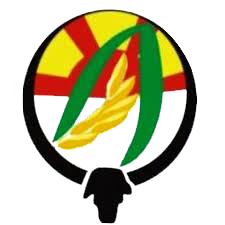The Central Luzon State University, one of the renowned and prestigious state-institutions of higher learning in the country, offers many undergraduate and graduate degree programs, including short-term courses, diploma, and certificate programs. The following is the complete list of academic programs offered by the university (SY 2020-21), as well as their corresponding details.
Look at the programs we offer that fit your educational goals.
COLLEGE OF AGRICULTURE
The Bachelor of Science in Agriculture program aims to educate students in the scientific habit of thought, entrepreneurial skills and prepare them to become professionals with entry-level competencies in technical agriculture. Specific professions/careers/occupations/trades that graduates may go into are in research, farm management, agriculture and food technology, entrepreneurship, and business in agriculture and teaching.
Major field of specialization of the program that students can choose from includes Animal Science which focuses either on ruminant, non-ruminant, or dairy production; Crop Science that focuses on either agronomy, horticulture, organic agriculture, or plant breeding; and Crop Protection where students can specialize in either Entomology, Plant Pathology or Weed Science. Moreover, they can also conduct thesis or field practice in the areas of Soil Science, Agricultural Economics, and Agricultural Extension Education.
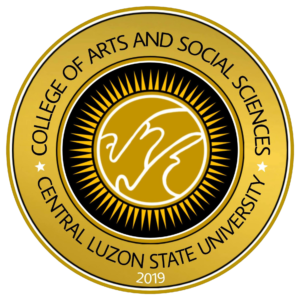
COLLEGE OF ARTS AND SOCIAL SCIENCES

COLLEGE OF BUSINESS AND ACCOUNTANCY
The BSBA is an integrated approach to study the different functional areas of business such as human resource management, marketing, finance, and economics. It will broaden the knowledge and skills of students for local and international business.
At the end of the program, graduates will appreciate the economic, social, technological as well as legal environments within which all businesses must operate and possess the basic business knowledge, skills, values, and attitudes to effectively lead an organization and achieve the desired results.
There are three distinct specializations namely: Human Resource Management, Marketing Management, and Business Economics.
The BSEntrep is a course offered at the College of Business Administration and Accountancy designed primarily to provide a combination of classroom training and experiential learning to help aspiring entrepreneurs acquire the knowledge, skills, and attitude to start, operate, and manage their own business enterprises. The program provides students an understanding and appreciation of existing and new venture operations of business enterprises.
The program aims to equip the students with an entrepreneurial mindset by helping them innovatively design their own career paths; acquire business competencies in starting, operating, and managing a business enterprise; create value for the different aspects of the community they belong to; and develop desirable qualities of leadership, environmental and social concerns, and moral values.
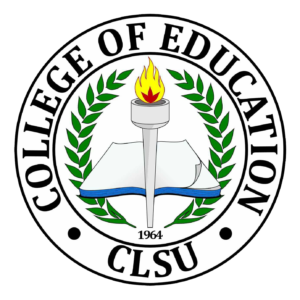
COLLEGE OF EDUCATION

COLLEGE OF ENGINEERING
The BSABE program is designed to produce graduates who possess knowledge, skills, and attitudes in the application of engineering science and designs to the processes and systems involved in the sustainable production, post-production, and processing of safe food, feed, fiber, timber, and other agricultural and biological materials; the efficient utilization, conservation, and management of natural and renewable resources; and development of climate change mitigation measures, in order to enhance human health in harmony with the environment. Agricultural and Biosystems (AB) consist of crops, poultry, livestock, fisheries and aquaculture resources, forestry and other plants, new and renewable energy, wastes, natural resources, and climate.
The graduates of BSABE are expected to understand and apply engineering science and designs to identify, analyze, and create solutions for problems concerning land development; irrigation and drainage including dams, farm roads and bridges; AB production machinery; new and renewable energy; AB buildings and structures; postharvest and processing technologies; climate change, and natural resources, environmental and waste management.
Civil Engineering is a profession that applies the basic principles of Science in conjunction with mathematical and computational tools to solve problems associated with developing and sustaining civilized life on our planet. Civil Engineering works are generally one-of-a-kind projects; they are often grand in scale, and they usually require cooperation among professionals of many different disciplines. The completion of a civil engineering project involves the solution of technical problems in which information from numerous sources and myriad non-technical factors play a significant role. Some of the most common examples of civil engineering works include bridges, buildings, dams, airports, ports and harbors, highways, tunnels, towers, and water distribution systems. Civil Engineers are concerned with flood controls, landslides, air and water pollution, and the design of facilities to withstand earthquakes and other natural hazards.
Civil Engineering is one of the broadest engineering disciplines both in terms of the range of problems that fall within its preview and in the range of knowledge required to solve those problems.
The BS Information Technology program includes the study of the utilization of both hardware and software technologies involving planning, installing, customizing, operating, managing and administering, and maintaining information technology infrastructure that provides computing solutions to address the needs of an organization.
The program prepares graduates to address various user needs involving the selection, development, application, integration, and management of computing technologies within an organization.
Meteorology is a branch of atmospheric science that deals with the study of weather processes and forecasting. It is an interdisciplinary science, drawing on basic knowledge, theory, and laws from a variety of scientific fields including physics, mathematics, and chemistry, which aid in developing a strong understanding of the physical and dynamical processes affecting atmospheric motions/behavior. This is a vast and complex field of study that also involves land-ocean-atmosphere interactions.
The atmosphere has been studied for a variety of reasons, including severe and extreme weather systems (e.g. tropical cyclones), agriculture, military defense, navigation, and disaster risk reduction and management.
Current advances in this field include big data analytics, high-resolution numerical modeling, and ensemble nowcasting, and long-range forecasting.

COLLEGE OF FISHERIES
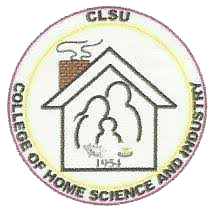
COLLEGE OF HOME SCIENCE AND INDUSTRY
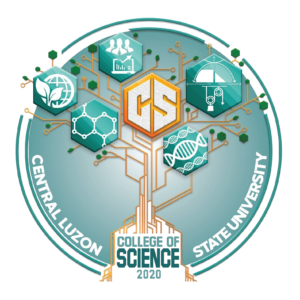
COLLEGE OF SCIENCE
The program is designed to provide students the ability to generate new knowledge and innovation related to the environment, to contribute to the protection and management of the environment, and to analyze local environmental issues and problems in the regional and global context by applying appropriate multidisciplinary and integrated tools and approaches related to environmental problems and concerns.
The students in the program may choose one of the five major fields: Environmental Conservation and Management, Sustainable Agriculture, Environmental Biology, Environmental Chemistry, and Environmental Engineering.
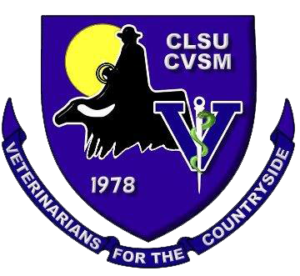
COLLEGE OF VETERINARY SCIENCE AND MEDICINE
- Doctor of Philosophy in Agricultural Engineering
- Doctor of Philosophy in Agricultural Entomology
- Doctor of Philosophy in Animal Science
- Doctor of Philosophy in Aquaculture
- Doctor of Philosophy in Biology
- Doctor of Philosophy in Crop Science
- Doctor of Philosophy in Development Communication
- Doctor of Philosophy in Development Education
- Doctor of Philosophy in Environmental Management
- Doctor of Philosophy in Plant Breeding
- Doctor of Philosophy in Rural Development
- Doctor of Philosophy in Soil Science
- Doctor of Philosophy in Sustainable Food Systems by Research Program (DOTUni)
- Master of Science in Agricultural Economics
- Master of Science in Agricultural Engineering
- Master of Science in Animal Science
- Master of Science in Aquaculture
- Master of Science in Biology
- Master of Science in Biology Education
- Master of Science in Chemistry Education
- Master of Science in Crop Protection
- Master of Science in Crop Science
- Master of Science in Development Communication
- Master of Science in Education
- Master of Science in Environmental Management
- Master of Science in Grain Science
- Master of Science in Guidance and Counselling
- Master of Science in Rural Development
- Master of Science in Soil Science
- Master of Arts in Literature
- Master of Arts in English Language Studies
- Master of Science in Renewable Energy Systems (DOTUni)
- Master of Veterinary Studies
- Master in Agribusiness Management
- Master in Biology
- Master in Business Administration
- Master in Chemistry
- Master in Environmental Management (DOTUni)
- Master in Local Government Management (DOTUni)
Distance, Open, and Transnational University (DOTUni)
Diploma
- Diploma in Land Use Planning
- Diploma in Local Government Management
Certificate
- Certificate in Agricultural Research Management
- Certificate in Basic Environmental Impact Assessment
- Certificate in Basic Local Governance
- Certificate in Entrepreneurship
- Certificate in Local Development Planning
- Certificate in Project Feasibility Preparation and Implementation
- Certificate in Training Management
- Certificate in Teaching
Institute of Sports, Physical Education and Recreation
Certificate
- Certificate in Physical Education
Vocational Course (1-Year Program)
- Certificate in Agricultural Mechanics
